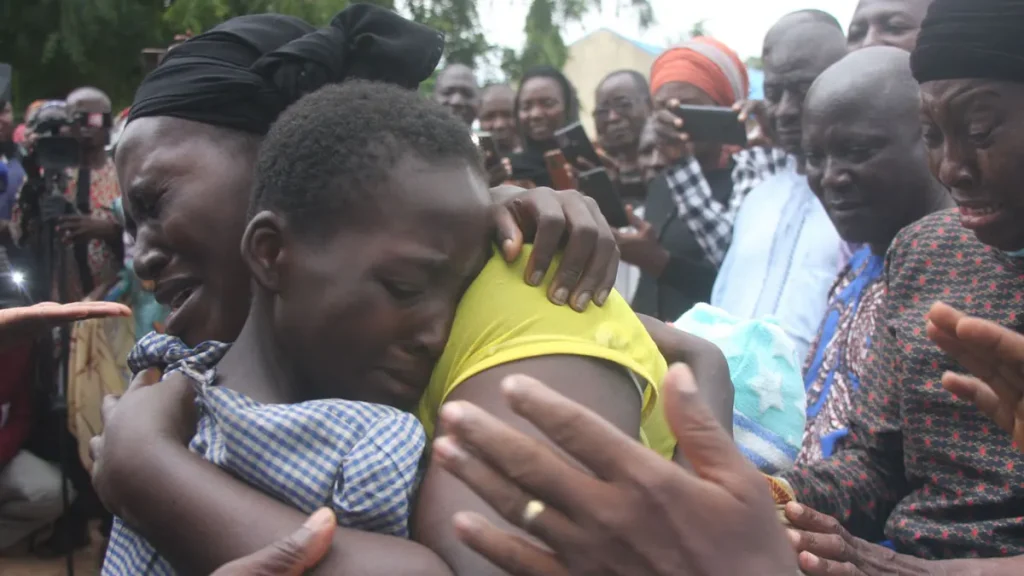Kidnapping for ransom has become a highly profitable criminal enterprise in Nigeria, with the Federal Capital Territory (FCT) at the forefront of ransom demands.
A recent incident involved the abduction of the traditional ruler of Gobir Emirate, Alhaji Isa Bawa. Bandits ambushed his vehicle, opened fire, and caused it to crash, allowing them to kidnap the Emir and his driver, who is also his son. The bandits demanded a staggering N1 billion for his release.
Following the inability to pay up, the bandits tormented him, made a video and gunned him down. To release the Emir’s body, the kidnappers demanded N60 million and motorcycles.
According to recent data from SBM Intelligence, kidnappers in the FCT alone have demanded a total of N3.13 billion in ransom. A particularly notable case was the abduction of 13 residents from the Piko community in Bwari LGA, where the kidnappers demanded N900 million for their release.
One particularly harrowing case involved the abduction of ten people from Sagwari Estate in Bwari Area Council in January 2024.
The kidnappers, who initially demanded N60 million per person, escalated their demands to N100 million after killing two victims to intimidate the families. This brought the total ransom to N700 million, reflecting the ruthless nature of these criminals.
While the FCT recorded the highest ransom demands, Lagos was not far behind, with kidnappers requesting N2.24 billion in total. Despite the smaller number of kidnapping incidents, the sums demanded in Lagos were still significant, underscoring the growing profitability of this crime across Nigeria.
However, despite the enormous sums demanded, kidnappers often received only a fraction of what they sought. In the FCT, only 5% of the requested ransoms were paid, amounting to N117.5 million.
The highest ransom paid in the FCT was N55 million, crowdfunded by the Al-Kadriya family after the tragic killing of Nabeeha Al-Kadriya during her abduction.
Kidnapping is not only prevalent in urban areas but also affects religious figures, with 18 Catholic priests abducted in 2024. The most tragic case occurred in Kwara, where Brother Godwin Eze was brutally murdered by his captors.
In August, bandits abducted an Islamic Scholar Sheikh Isma’il Gausi, after killing the Village head of Gefe, Kajuru LGA, Kaduna.
Doctors in Nigerian public hospitals started a seven-day nationwide strike to demand the release of their colleague, Dr Ganiyat Popoola, who has been held by kidnappers for eight months.
In Kogi, Sheikh Quasim Musa was kidnapped by unknown gunmen on Monday, March 25, 2024, at his house in Ilukpa, Iyara but later released in April.
While the Church traditionally maintains silence on ransom payments, reports indicate that N2.07 million was paid for the release of Catholic priests, nuns, and monks.
The South, particularly the Southeast, saw the highest ransom payments in 2024, totalling N419.2 million. This trend highlights the increasing demand for ransom payments in dollars, driven by Nigeria’s economic contraction and soaring inflation.
The rapid rise in kidnapping incidents, especially in the North, signals a worsening situation. From 2022 to 2024, the North experienced a dramatic increase in abductions, far surpassing previous years.
This disturbing trend suggests that kidnapping has become more than just a criminal activity—it is now a lucrative industry thriving even as Nigeria battles economic challenges.
To combat this growing menace, a comprehensive and coordinated effort is urgently needed. Disrupting the financial networks that sustain kidnapping operations, leveraging technology to track and block ransom payments, and taking decisive government action are crucial steps to curbing this epidemic.
Without such measures, kidnapping will continue to devastate lives and further entrench itself as Nigeria’s fastest-growing money spinner.

